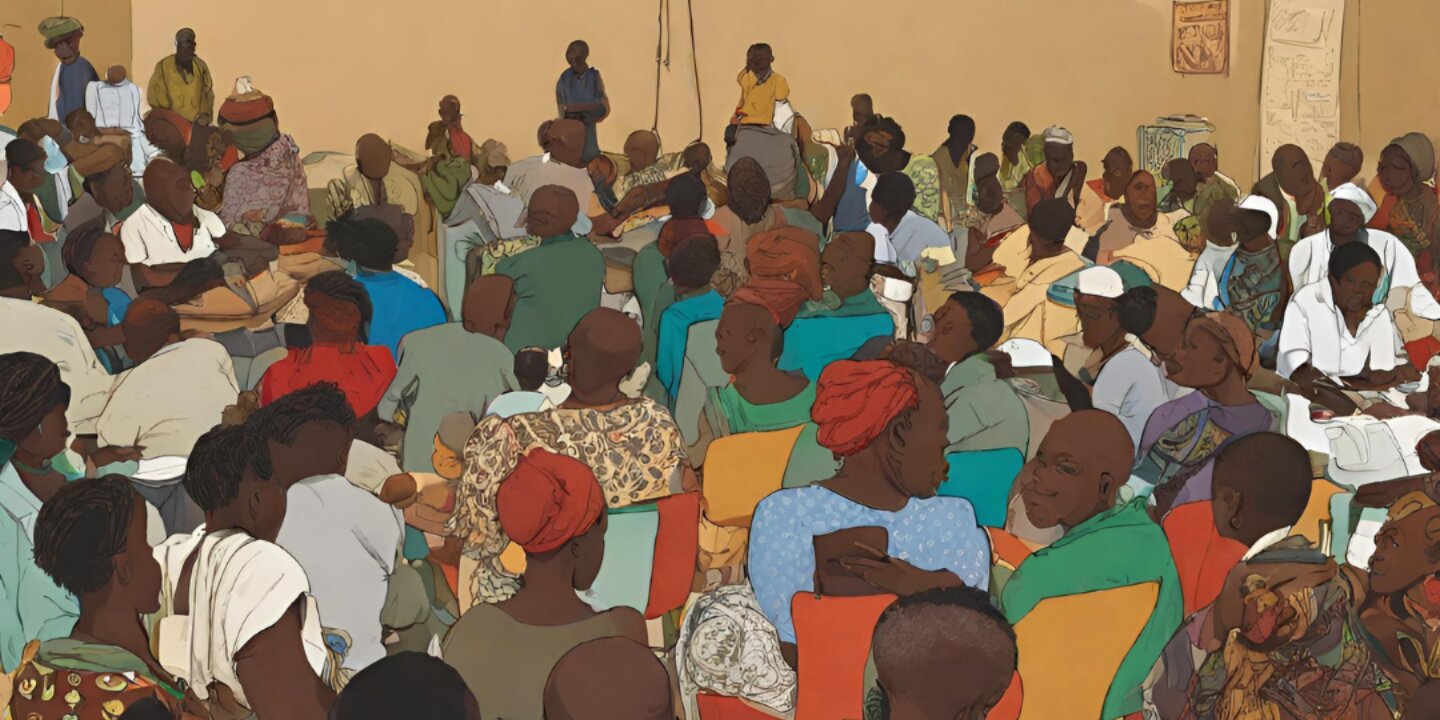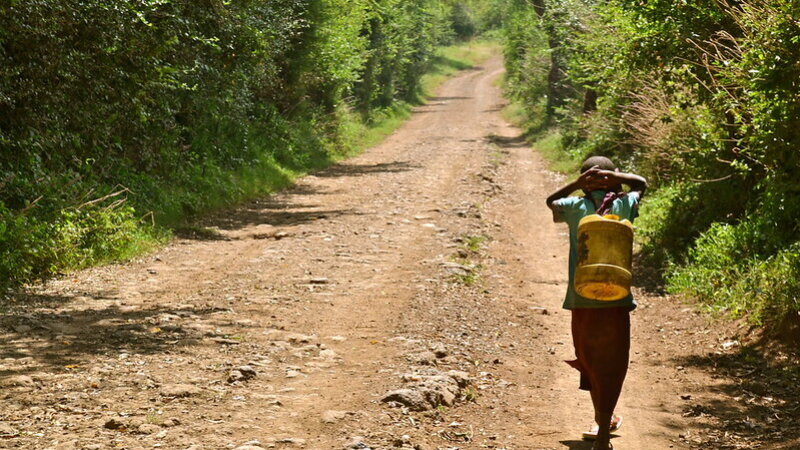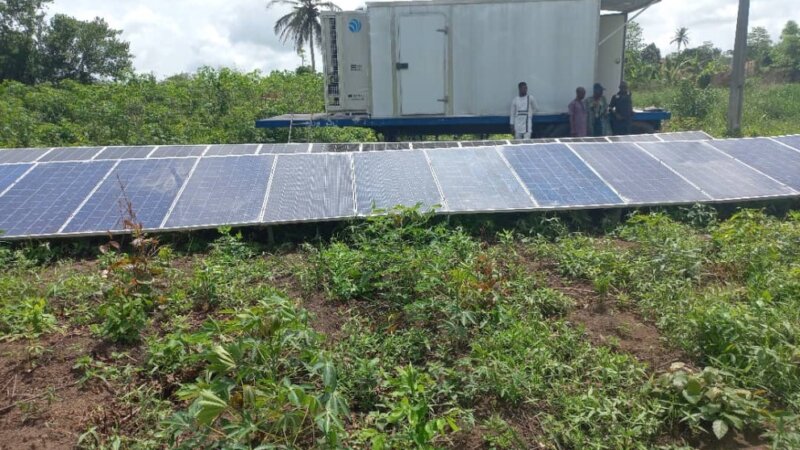Transformation Talks Session 3: From Insights to Action

On March 28, 2024, the third and final session of the Transformation Talks series on the Food Systems Governance Opportunity in South Sudan took place. This culminating workshop synthesised the insights gained from the first two sessions and focused on translating them into practical strategies. Participants collaboratively defined key actions needed to drive meaningful food systems transformation in the country.
In addition to consolidating learnings, the session focussed on formulating tangible action perspectives, providing the space for participants to move from reflection to implementation. It emphasised practical entry points and strategic priorities that stakeholders can act on within their own contexts.
The primary objective of this session was to connect these insights to the broader stakeholder network. By doing so, it aimed to deepen understanding of how various actors in South Sudan can effectively invest in and support robust food systems governance.
The session was facilitated by Julius Kaut (ZOA Dorcas - South Sudan) and started with a recap of the previous Transformation Talks by Rojan Bolling (view the reports, presentations and recordings of the sessions one and two). The recap revisited an explanation of food system transformation, the trends and opportunities in South Sudan, and the seven ways to support food systems transformation processes.
Download the presentation by Rojan Bolling – What is food systems governance, why is it an opportunity and how do you invest in it?
Afterwards, Dr. Augustino Atillio, Director General of the South Sudanese Ministry of Livestock & Fisheries, provided insights on key questions: why is it important to invest in food systems governance in South Sudan? Why is it an opportunity?
He highlighted, the transformation of South Sudan’s food systems requires more than isolated interventions; it demands an inclusive and strategic governance approach that engages a wide range of stakeholders, aligns resources, and ensures coherent policymaking. The following priorities emerged as key messages from the discussions on governance and resource mobilisation:
Collaborative Governance Approach
- Promote co-ownership, co-management, and co-funding among stakeholders in food systems governance.
- Encourage both public and private investment to support sustainable food systems.
Resource Mobilisation
- Leverage FAO’s role in mobilising funding from major donors to strengthen governance structures and capacities.
Policy and Institutional Coherence
- Initiate a government-wide policy review to:
- Identify existing policies, strategies, and mandates that either support or hinder coordinated food system efforts.
- Address policy incoherence and overlapping responsibilities across ministries and sectors.
- Review public expenditures and institutional mandates to better align resources with food systems governance objectives.
Cases and Key Takeaways
The remainder of the session focused on three cases shared by actors actively engaged in transition processes, each highlighting concrete opportunities and entry points for advancing change in fragile and development contexts. Presenters outlined transition objectives and made the case for targeted investment and engagement. Participants then split into groups, each discussing one of the cases to explore the governance of food systems transformation in South Sudan and identify actionable steps, both collectively and within their own organisations.
Budget Monitoring & Expenditure Tracking: South Sudan - Evidence Based Advocacy for service delivery by the government
Child's Right Coalition/ Right2Grow
This transition centered on shifting service delivery from partners (such as NGOs and international organisations) to government institutions. The focus was on prioritising critical sectors like food security and Water, Sanitation, and Hygiene (WASH) to ensure sustainable, locally driven solutions. The investment argument highlighted the importance of building government capacity, strengthening systems, and ensuring long-term service provision by national actors.
See the full presentation (slides) here - Transitioning from security oriented governance to socio-economic oriented governance
Key insights from the discussion included:
With increasing awareness of governmental obligations, this group identified local communities, CSOs, and the media as key actors in this transformation. As the information on the budget is publicly available, the next steps for this transformation include capacity-building, and raising awareness. The media should disseminate the Budget Monitoring and Expenditure Tracking (BMET) analysis. CSOs should continue to leverage their skills and ties with local communities and raise awareness, build capacity, and hold the government accountable through budget dialogues.
Local Food Systems Resilience dialogues & pathway development - Building the resilience of local food systems in South Sudan
University of Juba/WUR
This presentation addressed the need to transition the aid architecture to encourage development actors to engage in fragile contexts. It explored opportunities for integrating humanitarian and development efforts to create long-term stability. Investment considerations emphasised the benefits of bringing sustainable development financing and expertise into fragile environments, ultimately reducing dependency on short-term humanitarian aid.
See the full presentation (slides) here - Transitioning aid architecture to bring development actors into fragile spaces
Key insights from the discussion included:
The participants’ discussion highlighted that there is already considerable momentum to move away from humanitarian assistance and towards a food systems approach; national and subnational platforms are being established, research findings are being documented, and local value chains are being promoted and developed. To drive meaningful change, approaches must be harmonised in local systems with coordination and consolidation at all levels. This includes a gender- and youth-driven transformation, regional and internal fair trade, strengthening research initiatives, and strengthening the value chain.
Transition from Seed Aid to Seed Market - The case of A3SEED in South Sudan
IFDC/KIT
This transition focused on shifting from food aid and subsistence-based production toward local market-oriented agricultural production. The presentation identified opportunities in strengthening local value chains, improving market access, and supporting smallholder farmers in becoming commercially viable. Investment was framed as essential for fostering economic growth, resilience, and food security while reducing reliance on external food assistance.
See the full presentation (slides) here - Transitioning from subsistence based production to (local) market oriented production
Key insights from the discussion included:
Participants in this group noted that some donors are already invested in systems transformation and more seem to be receptive to funding such initiatives. To build on this momentum, CSOs should inform donors on focussing on locally produced seeds and market development. Further, they underscored the growing community resistance to imported seeds as an opportunity to develop South Sudan’s seed sector. With the government working on the National Seed Policy and an emerging private sector, local communities and cooperatives can work with the private sector to focus on production and distribution of local seeds.
Conclusion & Reflection on the Three Talks
Session 3 of the Transformation Talks series concluded a carefully structured journey, from understanding the landscape, to identifying opportunities, and ultimately moving towards actionable perspectives. By revisiting the insights of earlier sessions and grounding them in real-world examples, this final workshop demonstrated the power of looking beyond challenges to actively explore transitions as the key drivers of systemic change.
A central aim of the Transformation Talks was to strengthen food systems literacy among stakeholders in South Sudan. Many individuals and organisations are already working towards food systems transformation, often without recognising their role. By understanding how food systems work and how their efforts are interconnected, stakeholders can collaborate more strategically.
Food systems literacy means understanding the relationships between people, food, and broader socio-ecological systems, including your own role within them. In a context where many actors work in silos, this shared understanding helps bridge gaps, align efforts, and lay the groundwork for more coordinated and effective governance of food systems change.
Rather than simply diagnosing what is not working, the talks highlighted where change is already taking place, and how it can be accelerated. In this final session, participants examined three concrete transition pathways 1) shifting from humanitarian to development programming, 2) from subsistence to market-oriented production, and 3) from conflict-based to socio-economic governance. These cases helped participants recognise the broader systems their work contributes to, and the importance of coordinating efforts to influence the direction of change.
That structure helped participants explore three concrete transition cases: moving from humanitarian to development programming, from subsistence-based to market-oriented production, and from security-oriented to socio-economic governance. This transition-focused approach moved the conversation beyond problem analysis, encouraging reflection on pathways for change that foster forward-looking dialogue, shared ownership, and the identification of practical, context-specific entry points for action.
Throughout the talks, the insight that emerged is that many people in South Sudan are already shaping the food system, but they do so in fragmented ways, driven by local priorities, institutional mandates, or sectoral focus. By developing a shared understanding of what food systems transformation means, stakeholders can begin to see the value of working in greater alignment.
By identifying niche interventions and engaging with real transition pathways, participants could see how governance, resource mobilisation, and institutional coherence must better align. This approach supported participants in identifying both what they can do collectively and what they can start doing individually within their organisations.
The Transformation Talks series provides a framework not just for understanding food systems transformation, but for enabling it.
Authors

Ruth van de Velde
Partnership Builder

Rojan Bolling
Knowledge broker




